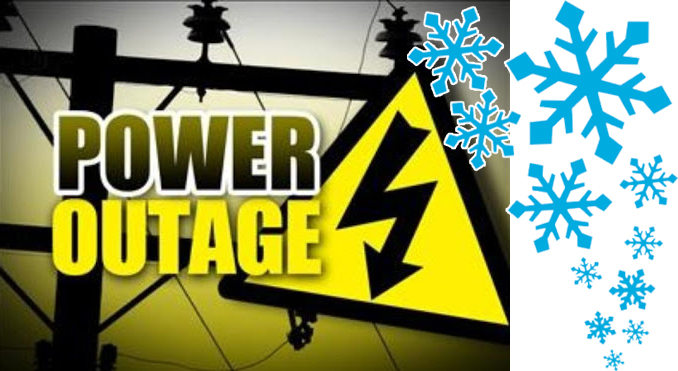
by Evelyn J. Mocbeichel
While the first falling snowflakes look beautiful as they settle on the ground, after that first allure, there are hazards to contend with in its aftermath. Unless you are someone that skis and loves snow, then like the rest of us, this weather means work, miserable commuting, higher fuel bills and possible electrical outages. With these thoughts in mind, it is important to prepare, “just in case” of high winds or ice that cause many communities to lose power. Even for a short period of time, these events can be very disturbing and unsettling. The best way to survive these ordeals with a minimum of stress is to be prepared the best you can. The steps to do so are simple, not expensive and worth the time and effort now to have them in place.
Most important is to have enough light to maneuver in case your house is dark because of a power outage and you have to go from room to room. Buy a few portable self-powered lights, battery powered flashlights or gas powered lanterns. We have one of those old fashioned camping lanterns and it throws enough light to illuminate a whole room and bright enough to read by for those long evenings without a television or computer to entertain. Candles can be on hand, too, but be cautious if young children are in the home. If you have an active cat or dog that is prone to jump up on the sofa or near tables, re think how low you place your lit candles. Don’t forget to stock up on packages of AA, C, D, 6 or 9 volt batteries that you made need for your lanterns or flash lights. Test your equipment frequently throughout the winter. Portable, self powered radios are a must to keep abreast of what the weather, road conditions and what emergency information is being dispersed by your community or surrounding areas. A weather radio is also a good thing to have to keep informed about storm updates, wind and tide heights and other information that pertains to your locale. Some information might be important enough to warrant evacuation of your home. In case the power outage lasts for a few days, like we had years ago during Hurricane Sandy, this could mean the loss of all refrigerated items. Meat and veggies that were defrosted cooked first, that is if you have a gas range or access to a grill. However, if there is snow on the ground, much of the food can be safely salvaged by storing outside in picnic ice chests or large plastic storage containers. In the past, we packed them full with snow and put food items in plastic bags and either pushed them into the snow to keep frozen or put them on top of the snow to keep cold. This kept the items fresh for several days. A portable generator can be purchased that will provide energy for light, run your heating system and preserving food. A smaller generator is less expensive than one that would power the whole house, including a dishwasher or washing machine. Budget and family needs dictate which is best for your household.

